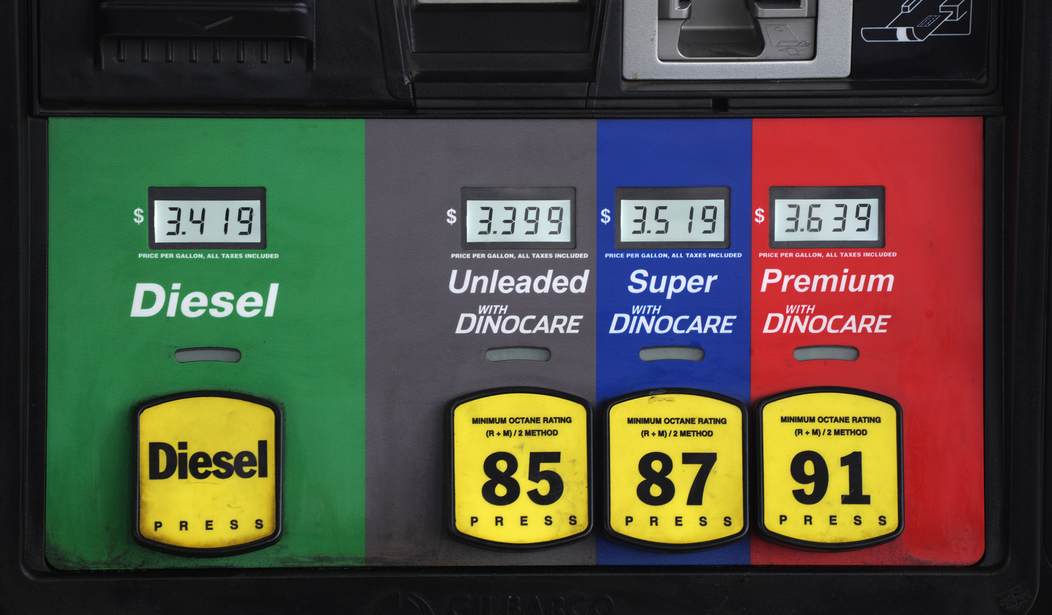Of course not! That is, a little inflation never hurt anyone except those living on fixed incomes. And those who earn in the lower quintiles, whose buying power evaporates faster than their wages increase. And pretty much anyone who conducted their finances in a responsible manner and put away savings for retirement and investment.
Other than those voters, though, NBC reports, Democrats are taking the “what, me worry?” posture on inflation and massive expansion of federal spending:
Inflation doesn’t matter.
That’s the message Democratic leaders are sending as they try to push more than $4 trillion into the economy to build infrastructure, fight climate change and ease the financial cost of child and elder care for families.
President Joe Biden says the 5.4 percent increase in the price of a basket of goods over the 12 months that ended in June is “temporary,” and a private White House presentation obtained by NBC News encourages Democratic lawmakers to focus on how Biden’s plan “lowers costs for working families rather than how it gets people back to work or helps the economy.”
First off, let’s dispense with the word “temporary.” The rate of inflation might drop in coming months, but the inflation that has already occurred is permanent. The buying power of workers has eroded already, and will continue to erode long after the artificial and perverse incentives in place at the moment propping up wage hikes have expired. The only way to reverse that is to have a period of deflation, which is itself very damaging; that cure is almost certainly worse than the disease. Prices that go up rarely come down, especially when a significant part of the rise comes from the devaluation that massive money printing creates.
That’s not just on Congress, although the impulse to spend trillions of off-budget dollars has been given full rein in this pandemic. The last COVID-19 relief bill cost nearly $2 trillion in borrowed money, and Congress passed it before the money they appropriated in the previous relief bill had been spent. It’s also on the Federal Reserve, which has been buying Congress’ debt at the rate of $120 billion a month, a massive expansion of the dollar with benefits that are increasingly unclear to critics — and members of the Fed itself:
Shortly after the pandemic struck last year, the Federal Reserve began buying billions of dollars in government debt every month to drive down borrowing costs and keep the economy from collapsing.
Today, house prices are surging, stocks have continued their stratospheric rise, and banks have more cash than they know what to do with. Yet the Fed is still pumping billions into the economy. Why?
That’s what a growing number of lawmakers, investors and even some Fed officials themselves are demanding to know. They are warning that the central bank’s vast purchases of government bonds and mortgage-backed securities are feeding financial bubbles in the housing, stock and even cryptocurrency markets, and stoking higher consumer prices, with little apparent benefit to ordinary Americans.
The argument from Democrats, NBC’s Jonathan Allen writes, is that the impact of the spending programs will make life easier and simpler over time, and that those benefits will outweigh the damage of the “temporary” inflation taking place now. The problem with that argument is that the spending on those programs will roll out over a longer period of time, which means that the inflation will be anything but “temporary,” and it will be regressive as hell. It will hurt the people whom Democrats claim to champion hardest — retirees and working-class Americans.
As we learned in the 1970s, sustained inflation corrodes economies. It makes less sense to invest, so capital seeks shelter instead, which kills any momentum for growth. That puts a serious damper on job creation, which itself becomes corrosive to economic expansion, and eventually drags wages down while prices continue to go up. The Fed will then have to intervene by raising interest rates, which might blunt inflation but also strangles investment and business expansion. It is far better to maintain fiscal responsibility and not print money like madmen breaking into the US Mint, but then again, that’s a lesson that neither political party seems to recall very well.
Democrats might be sanguine about “temporary” or “transitory” inflation at the moment. When it extends into the 2022 midterm cycle, they will likely end up paying a very large bill — one that printing money won’t help cover.








